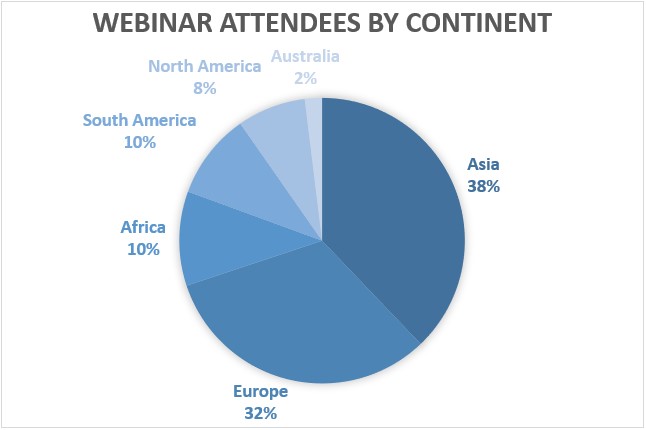🇪🇸 Find this article in Spanish here.
Find panellists’ ppt presentations here: Dr Anand Chiplunkar (HR2Water), Patricia Lopez (World Bank), Geoffrey Hamilton (UNECE), Irina Tsay (SOS Children’s Villages Int.)
Understanding that the progress being made to achieve sustainable development goal 6 (SDG6) is not currently on track for its 2030 goal, this webinar explored practical means to accelerating process through the support of Public Private Partnerships (PPPs), and the importance of including a human rights-based approach.
Click here to read more about our Panellists.
The webinar was jointly hosted by Human Right 2 Water’s Chief Executive Amanda Loeffen, and board member Dr. Anand Chiplunkar.
Dr. Chiplunkar provided an insightful presentation, and setting the scene for the upcoming discussion, he observed that “This webinar could not have come at more of an appropriate time, during the pandemic, where it is recognised that one needs to have adequate water and hygiene, which is an essential tool in ceasing the spread of COVID19.”
Taking note of the lack of progress and funding worldwide needed to provide water and sanitation for all, Amanda Loeffen began by asking important questions about Public Private Partnerships and “How do we create more trust in the private sector to be human rights based in their approach? and, How do we build on government commitments to respect these crucial human rights, partnering with financial institutions so that marginalised communities can be protected?”
A diverse panel of water finance, utility and PPP experts joined us to answer these questions and provide their own perspectives on the interlink between People-first PPPs and the need for a Human Rights-Based approach.
For reasons linked to the pandemic, Un-Water Vice-Chair Olcay Ünver was unable to join us at the last minute, so we gladly welcomed Klas Moldeus to speak on his behalf as the UN-Water representative. Mr. Moldeus accentuated the need for a multilateral response as water and sanitation cut across all three of the UN-Charter’s main pillars:
- Peace and security – with 280 water courses shared by 2 or more countries and with growing water stress, improving water management and strengthening water cooperation is essential to address risks of water related disputes and promote peace.
- Human rights – the right to safe drinking water was first recognised by the general assembly 10 years ago, followed by the right to sanitation being explicitly recognised 5 years later.
- Sustainable development; –water is required to deliver almost all other SDGs from global health, to food security and it is essential for resilience to climate change. This cross-cutting nature of water reveals the need to properly value water in all its dimensions and uses.
Joining us from the World Bank, Senior Infrastructure Finance Specialist Patricia Lopez emphasised the significant size of the financing gap in the SDG 6 agenda. She stated that “From 2000 to 2015 we were investing around 15% of the total capital investment needed to accomplish universal access for the new SDG standards. SDG 6 is a major challenge from the point of view of financing universal access to WASH services…From the World Bank Group we are supporting the mobilisation of finance for SDG 6 using both public and private finance, or a combination of both from public borrowing all the way through to commercial finance.”
Ms. Lopez continued to discuss the critical changes to PPPs that are required to achieve SDG 6 by providing a range of case studies, such as the successful PPP combining public and private resources from Guayaquil, Ecuador.
Geoffrey Hamilton, Chief of the International PPP Centre of Excellence at UNECE delved into the UNECE programme for benchmarking Pf-PPPs and the more inclusive ways to develop PPPs. “The PPP model has to be revised. People-First has sustainable development as its core and people as the main beneficiaries.” He explained the five outcomes;
- Increasing access to essential services and lessening social inequality and injustice.
- Enhancing resilience and responsibility towards environmental sustainability
- Improving economic effectiveness and fiscal sustainability
- Promoting replicability and the development of further projects.
- Fully involving all stakeholders in the projects.
This is what we call value for people, rather than the traditional model which was just value for money.
Irina Tsay, Regional Project Manager at SOS Children’s Villages gave us an insight into whether PPPs are important within the social sectors. She explained how they started to investigate the PPP as a new mechanism for NGO sectors two years ago. They started the PPP professional training in Kyrgyzstan for SOS co-workers from nine CIS countries and key ministries from Kyrgyz Government. This was a simple training, however it was a great communication platform where they started to discuss whether its possible to use social PPP in this country within the child-care sector.
Finally, Aquafed’s Executive director, Neil Dhot provided us with a perspective from the private water services association and touching on important changes that must be made if we are to achieve SDG 6. His thoughts were that “The most marginalised are seen very much as charity and it is not helping them be self-sufficient…and the mentality of the western world donors needs to change.”
This is clearly a hot topic for many people, and one that potentially provides pragmatic solutions to scale up and attract funding. Human Right 2 Water looks forward to further engagement with anyone that in interested in this topic.

101 attendees and nearly 200 registrants joined us from all over the globe, including Asia, Africa and the Americas.
For those of you who were unable to join, a recording of the webinar is available.
Next month’s webinar will focus on the important discussion; why is a Human Rights-Based Approach important in Integrated Water Resource Management? The event will be held on the 2nd September with further details to be announced shortly.


